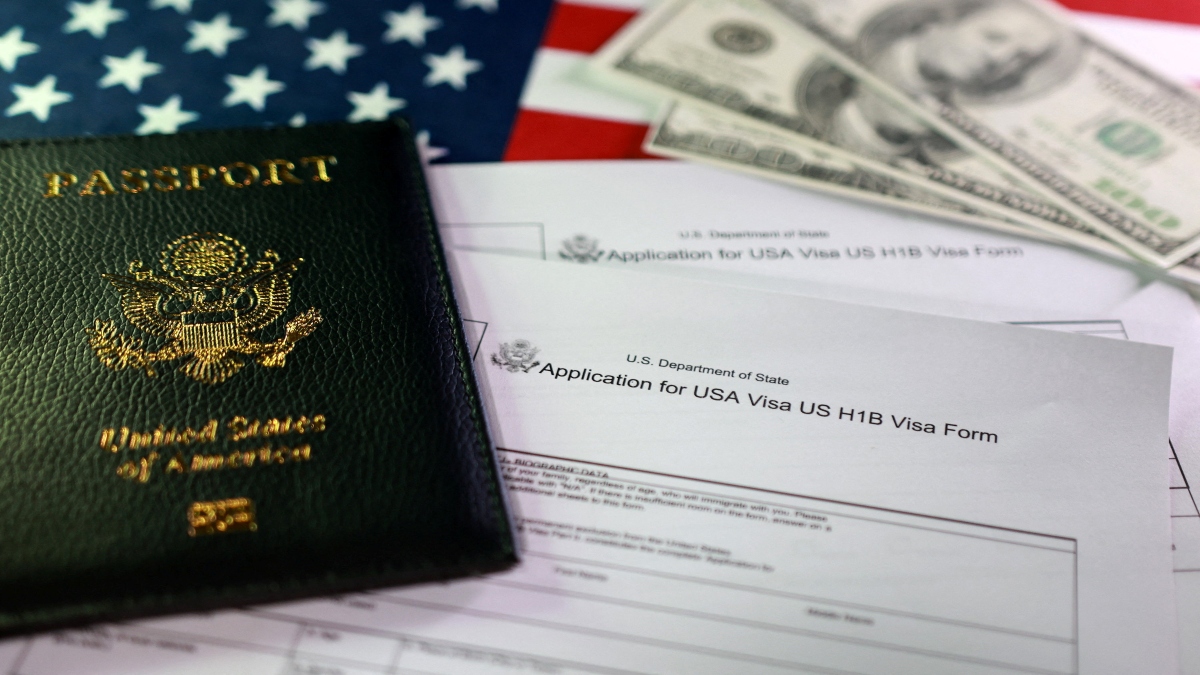“The Proclamation allows for potential exemptions, which can include physicians and medical residents,” White House spokesperson Taylor Rogers said in a statement
The White House on Monday indicated that doctors may be exempt from the Trump administration’s newly introduced $100,000 fee on high-skilled H-1B visa applications.
In a statement to Bloomberg News, White House spokesperson Taylor Rogers said, “The Proclamation allows for potential exemptions, which can include physicians and medical residents.”
The proposed visa fee had raised concerns among medical professionals, who warned that it could severely limit the flow of international medical graduates entering the United States.
The $100,000 fee for H-1B visas “risks shutting off the pipeline of highly trained physicians that patients depend on, especially in rural and underserved communities,” Bloomberg had quoted American Medical Association President Bobby Mukkamala, a Michigan head and neck surgeon, as saying.
President Donald Trump last week signed a proclamation imposing a $100,000 fee on H-1B visas, a significant policy shift that could transform US immigration.
The administration argues that the fee will ensure only “extraordinarily skilled” individuals are granted entry, while discouraging companies from hiring foreign workers to replace American employees.
Describing the move as a necessary correction, Commerce Secretary Howard Lutnick said that previous employment-based visa policies allowed individuals earning below-average wages, often reliant on government assistance.
He added that the new policy will eliminate the “bottom quartile” of applicants and is expected to generate over $100 billion in revenue for the US Treasury.
President Trump said that these funds would help reduce the national debt and lower taxes.
Why this matters for Indian professionals
For India, the decision lands like a thunderclap. Approximately 71% of H-1B visa holders are Indian, most of whom work in the technology sector. Companies such as Infosys, Wipro, Cognizant, and Tata Consultancy Services have long depended on the programme to deploy Indian engineers and developers on US projects.
With visas valid for three years and renewable up to six, the new $100,000 fee could make it prohibitively expensive for firms to retain Indian professionals, especially given the decades-long wait many face for Green Cards.
The impact goes beyond individual careers. India’s $250-billion IT services industry has thrived on sending talent abroad, particularly to the US. If companies hesitate to pay the new annual fee per employee, opportunities for Indian professionals could shrink significantly, potentially eroding India’s competitive advantage in the global tech market.
The US technology sector, a major user of H-1B visas, now faces considerable uncertainty. While Trump insists that “big tech loves the idea,” investors responded nervously.
Reuters reported that shares of IT services companies, including US-listed Indian firms, dropped between 2% and 5% after the announcement.
Critics argue the measure discourages talent mobility and stifles innovation, while supporters claim it will prevent wage suppression and push companies to invest in training American graduates instead.
“Information technology (IT) firms in particular have prominently manipulated the H-1B system, significantly harming American workers in computer-related fields,” said a White House memo on the issue.
With inputs from agencies
End of Article

)

